Last month, we announced the introduction of PWW’s Community Education Program (CEP) in Haiti (read story). This month, we share details about the CEP launch at a school in Limonade, Haiti.
As a reminder, the CEP Model is founded upon the goal of developing a pool of local WASH (water, sanitation and hygiene) paraprofessionals, made up of respected and motivated community leaders. PWW selects, trains, and supports the group of individuals, known as Lead Community Agents (LCAs), who serve as local WASH leaders, knowledgeable about effective WASH practices and able to teach these practices to fellow community members.
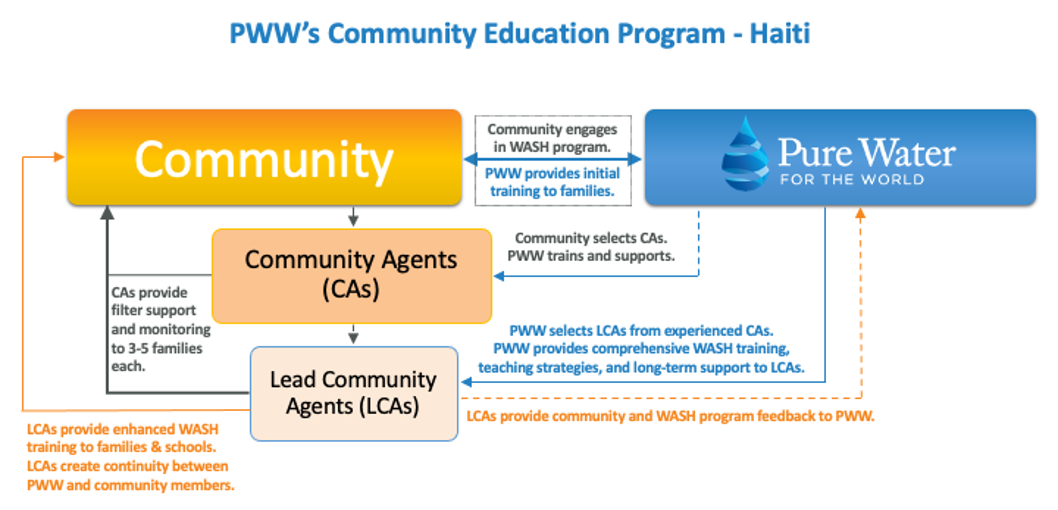
In May 2022, PWW selected the first group of LCAs. Individuals who become LCAs are already connected with PWW and are actively serving as Community Agents (CAs), volunteers selected by the community and trained by PWW to support the community’s safe water program.
The first group of LCAs live in the Roucou area of Limonade, where PWW has been working for the past three years. Junior Seraphin, WASH Trainer Coordinator with PWW Haiti (pictured right), delivered the two-day intensive workshop to the selected group of five individuals. In addition to learning the curriculum, the group learned how to effectively teach WASH concepts to community members. They also worked on localizing the content and documented materials to support the local dialect.
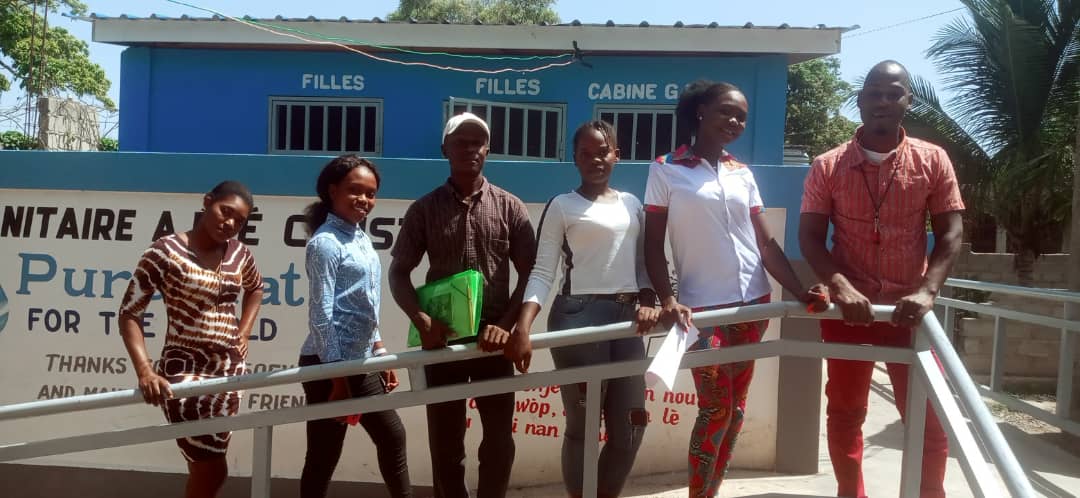
The LCAs initial opportunity to put their WASH training into action was with students at the Adelphos School, where PWW recently completed a comprehensive safe water and sanitation facility, complete with gender-specific bathrooms (to support adolescent girls with safely and privately managing their menstrual cycles), urinals, a shower, handwashing stations, and reliable access to safe water.
In collaboration with the school principal and staff, PWW and the LCAs established a training schedule to take place on Fridays for four weeks. The training sessions included information about menstrual hygiene management, personal hygiene and handwashing, environmental hygiene, and prevention practices against COVID-19 and other virus.
The students were very engaged in the course materials and the training sessions. They worked with the LCAs and school administration to establish a student WASH committee, the Hygiene Club, which will be run and managed by students with oversight by the school administration and support from the LCAs. The Hygiene Club will serve to continue advancing and supporting the correct and consistent use of healthy WASH practices.
When asked what she had learned, one student enthusiastically shared: “Ok, here is what I have learned: personal hygiene is when we keep our body clean, we now know how to brush our teeth, and we know that we need to wash our hands when leaving the restroom and before eating food. This is some of what I have learned!”
LCA TRAINING EXAMPLE: ENVIRONMENTAL HYGIENE
One training session focused on the importance of cleaning up the school grounds. Three separate bins were introduced for managing waste: organic waste, paper waste, and plastic waste. While recycling is not prominent in Haiti, programs are underway to encourage community members to think locally and globally about their waste and take proactive steps to effectively reduce and manage waste in support of their own health and the health of the environment.
The following was shared by Junior:
An unhealthy school environment can significantly reduce school attendance rates. Among the diseases that affect children, the most important are intestinal infections and diarrhea. The promotion of good hygiene practices at home and at school are the most effective and economical means of preventing these diseases in a sustainable way.
The health of students is a major component of their general wellbeing. As such, it is necessary to help young people develop knowledge and behaviors that are favorable to good health. School is the best place for this.
At Adelphos School, during an environmental hygiene training with LCAs, students gained an understanding about the importance of waste management. They all agreed to take responsibility by cleaning up the school environment, starting by sorting the waste using the color-coded bins.
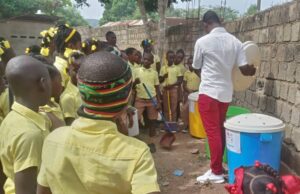
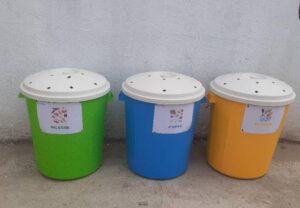
LCA TRAINING EXAMPLE: MENSTRUAL HYGIENE MANAGEMENT
LCAs were able to integrate the menstrual hygiene management training with global Menstrual Hygiene Day, which takes place every year on May 28th. Fifty students participated in MH Day activities. LCAs taught students about menstruation as a natural process related to the reproductive cycle of women and adolescent girls and dispelled the myth and misunderstandings that menstruation is a “disease.” They helped students understand that menstruation is a sign of good health and growth.
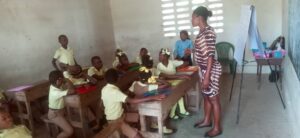
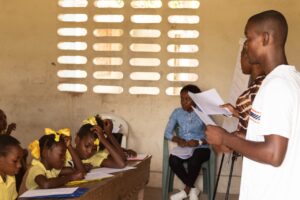
LCAs explained the importance of safe and healthy menstrual hygiene practices. As an interactive learning session, students worked in small groups to practice what they learned in order to take lessons learned into action. The essential roles of safe water, sanitation facilities, soap and personal hygiene, and proper waste disposal were incorporated into the session.
Students were encouraged to break the silence about menstrual hygiene, with girls gaining the confidence and knowledge to effectively manage their menstrual cycles, without shame or misunderstanding.
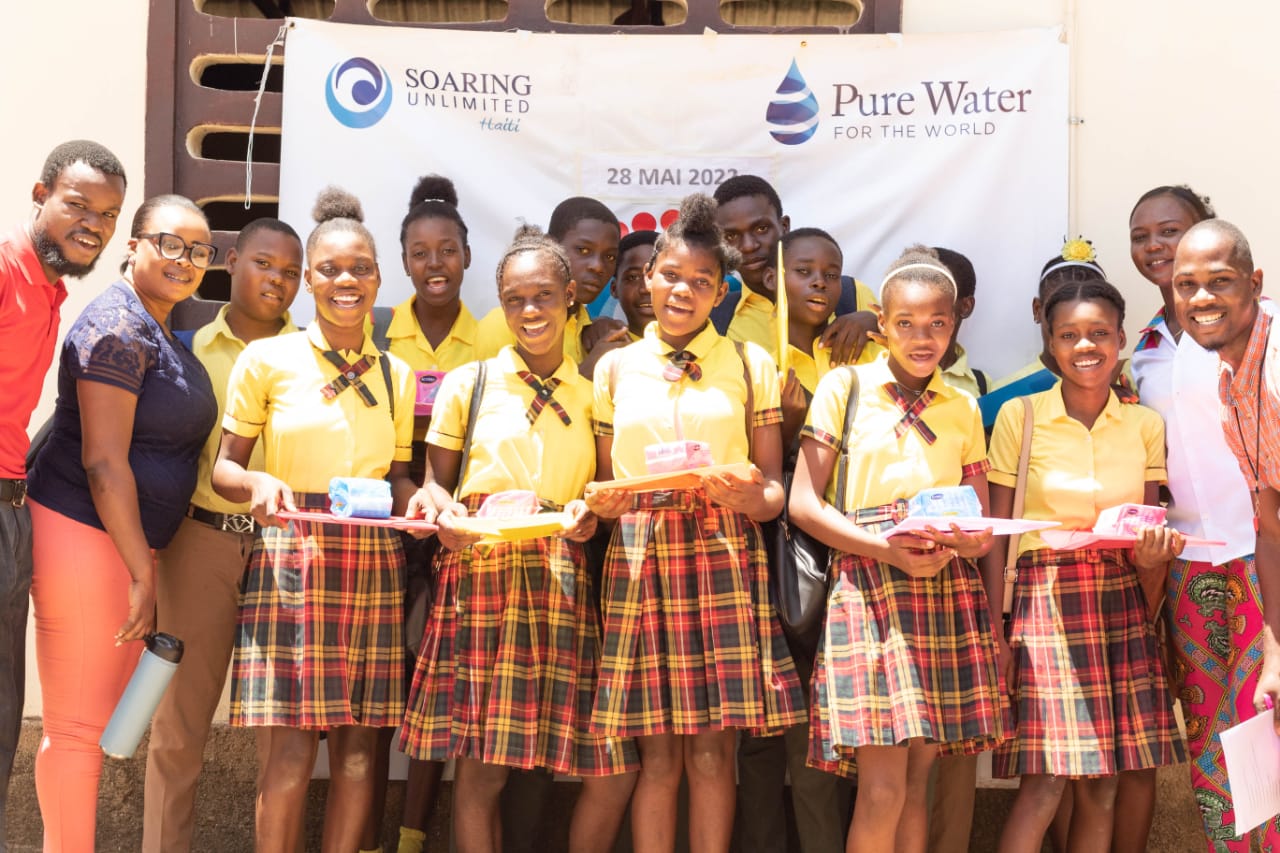
When asked about the impact of the CEP program on the school community, Junior responded, “Training went very well. All [students and administrators] are adjusting to healthy WASH practices at the school. As they keep moving forward, they will certainly see lasting improvement.”
